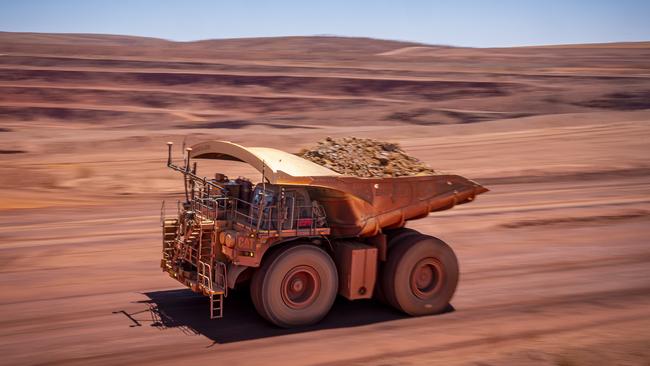KPMG: Skill shortages one of mining’s biggest risks but prices still dominate concerns
The risk of skills shortages is one of the top concerns and risks facing the mining industry in 2021, according to KPMG.

The risk of looming skills shortages in the mining industry has made the issue one of the top concerns and risks facing the sector in 2021, according to global accounting and consulting firm KPMG, but the risk of the price boom suddenly ending remains the weightiest on the minds of the sector’s most senior executives.
Despite the strongest year for commodity prices in a decade, mining executives are still fretting about when it all might end, with commodity price risk still at the top of risk factors listed by KPMG in its annual survey of major risk factors facing the Australian mining sector.
KPMG will release its 2021 Australian mining risk outlook on Tuesday, and KPMG mining risk partner Caron Sugars said the concern was not just about whether prices would taper, given they’ve been driven partly on the massive stimulus spending by governments across the globe, but whether the impact of higher commodity prices would cause lingering cost inflation at major miners.
The concern dovetails with rising worries about access to the skilled labour needed to run mining operations and take best advantage of high prices, she said.
“One of the concerns for us always is that whenever you’re seeing very high commodity prices, it’s easy for some inefficiencies to creep into the system, which can end up hurting when things do change,” she said.
“It’s very tempting just to make sure that you’re getting the tons out of the ground.”
That cost inflation is likely to be exacerbated by a growing crisis around access to skilled labour in the sector. Risks around access to key talent entered KPMG’s list in eighth place in 2021, but was not on the radar in the industry survey conducted for its 2020 report.
But over the last year the struggle to find skilled staff has begun to impact on the ability of miners, particularly those operating in WA’s super heated resources sector, to get commodities out of the ground and to their customers, sparking a wave of production downgrades and cost blowouts across the sector.
Concerns about a looming shortfall in skilled staff – trades, technical and professional – have been growing for years, but pandemic-related border closures have exacerbated the problem, as has the wave of government spending on infrastructure projects, which has intensified the competition for both skilled and unskilled workers.
“The focus has been on the talent piece for a long time and we’ve seen the Kalgoorlie School of Mines, for example, say they just aren’t getting the registrations that they used to,” Ms Sugar said.
“But I think the surprise for everybody is that unskilled base – so not having truck drivers. And we’ve seen the mining companies coming out saying, well, we don’t have the truck drivers, there’s not much that we can do.”
This week the WA Chamber of Minerals and Energy released a new report flagging a likely shortfall of up to 40,000 workers in the state within two years, warning the WA labour market was “tapped out” and the crisis could impact the industry’s ability to build new projects and operate existing mines to full efficiency.
KPMG Australia’s newly appointed Head of Mining, Nick Harridge, said the issue was a growing problem globally, with the closure of international borders hitting offshore operators also.
“We’re seeing it in our business in South America. Trying to resource projects for mining clients is challenging and those mining clients are finding it hard to get talent to support them,” he said.
But Mr Harridge said when international borders did eventually reopen, Australia’s success in handling the pandemic would stand it in good stead to compete for skilled and professional workers in a global setting.
“Australia’s possibly got an advantage for how well that we’ve handled Covid So I know we’re getting a lot of requests for people to move into Australia – but now there’s just no opportunity to do that.
“So the mining industry here may benefit because we have handled it so well, so there‘s an opportunity there. But without the borders opening there’s not much chance to test that.”
The election of Joe Biden as US president has taken some of the tension and drama out of international relations, with the threat of broadly fought trade wars largely seen as receding.
But Australia remains mired in an ongoing dispute with China, with trade between the two countries the victim of political and security tensions, and the threat of global trade and tariff wars remains high on the list of risks faced by the Australian industry, according to KPMG, retaining its third spot in the top ten.
Rio Tinto’s Juukan Gorge debacle pushed concerns around community relations and miner’s social license to operate into second spot for the year, up from sixth in 2020, with worries about access to capital dropping completely from the list after a bumper year on the markets for junior and mid-tier miners.



To join the conversation, please log in. Don't have an account? Register
Join the conversation, you are commenting as Logout